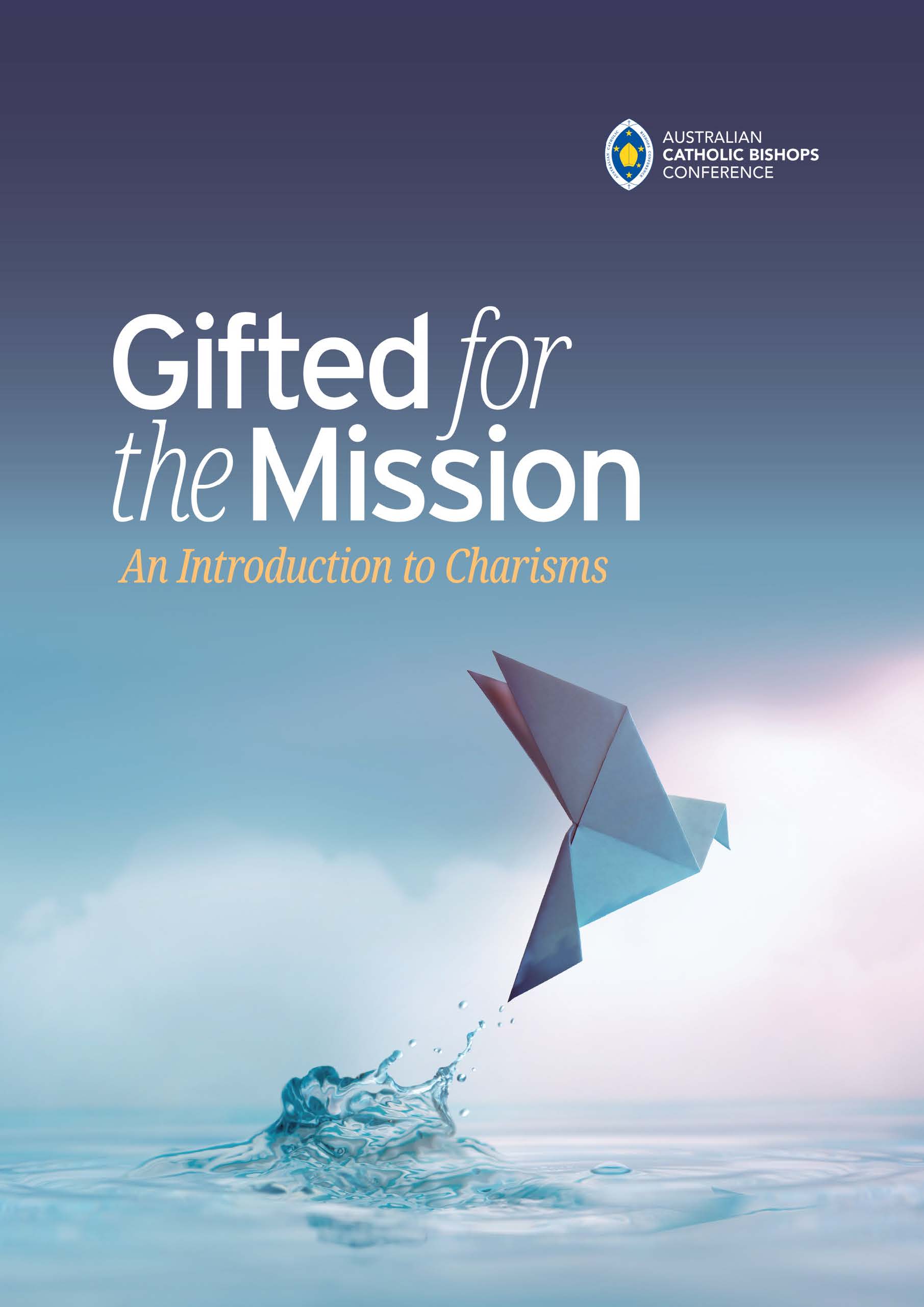 In 2025 the Australian Bishops Commission for Evangelisation, Laity and Ministry released an introductory document on the importance of discerning and using charisms.
In 2025 the Australian Bishops Commission for Evangelisation, Laity and Ministry released an introductory document on the importance of discerning and using charisms.
‘Gifted for the Mission: An Introduction to Charisms’ explores the scriptural basis for charisms, outlines some examples of the presence of charisms in the lives of the saints, and introduces the process of discerning our own charisms.
View ‘Gifted for the Mission: An Introduction to Charisms’
“Whether extraordinary or simple and humble, charisms are graces of the Holy Spirit which directly or indirectly benefit the Church, ordered as they are to her building up, to the good of men, and to the needs of the world.
“Charisms are to be accepted with gratitude by the person who receives them and by all members of the Church as well. They are a wonderfully rich grace for the apostolic vitality and for the holiness of the entire Body of Christ, provided they really are genuine gifts of the Holy Spirit and are used in full conformity with authentic promptings of this same Spirit, that is, in keeping with charity, the true measure of all charisms.”
(Catechism of the Catholic Church, nn. 799-800)
Exercising our charisms for the life of the world
Through Baptism, all Catholics are called to share the Good News of Jesus Christ and to build up God’s kingdom on earth. The way the baptised do this is reliant on the gifts given to them by the Holy Spirit in Baptism and strengthened in the Sacrament of Confirmation.
A charism is a spiritual gift which we receive from the Holy Spirit for the purpose of serving the world, be that in our families, workplaces or indeed, in all the forums life takes us. Some of the charisms which have been identified include administration, encouragement, evangelisation, healing, hospitality, leadership and mercy.
The Australian Bishops’ 2025 document, Gifted for the Mission: An Introduction to Charisms, outlines how charisms can be seen at work in many holy people, such as St Padre Pio, St Mother Teresa of Kolkata and others:
“Here in Australia, we see in the life of St Mary of the Cross MacKillop evidence of the charisms of teaching, mercy and administration, while Caroline Chisholm, who was a wife, mother and social worker, likely utilised the charisms of wisdom and administration in settling over 11,000 people in colonial Australia” (n. 17).
Discernment of charisms and the benefit to parishes and faith communities
Pope Francis described charisms as being for the common good:
“Two elements contribute to defining what charism is. A somewhat difficult word, I will explain it. First, the charism is the gift given “for the common good” (1 Cor 12:7), to be useful to everyone. It is not, in other words, destined principally and ordinarily for the sanctification of the person, but for the “service” of the community (cf. 1 Pt 4:10). This is the first aspect. Secondly, the charism is the gift given “to one”, or “to some” in particular, not to everyone in the same way, and this is what distinguishes it from sanctifying grace, from the theological virtues and from the sacraments, which instead are the same and common to all. The charism is given to a specific person or community. It is a gift that God gives you” (General Audience, 20 November, 2024).
In Gifted for the Mission, the Australian Bishops state that when members of a parish or faith community are aware of their charisms and use them “together for the sake of the mission… people experience the Holy Spirit more directly and so encounter Jesus more vividly” (n. 27). This is because, as stated in Lumen Gentium, through the charisms, the Holy Spirit makes the faithful “fit and ready to undertake the various tasks and offices which contribute toward the renewal and building up of the Church” (n. 12).
In this discernment process it is not uncommon for some people to realise they have generously taken on ministry roles for which they aren’t necessarily gifted. This often results in the ministry becoming burdensome, resulting in burn-out and/or a lack of satisfaction in the ministry. On the other hand, when a person is empowered to use their charisms, possibly supported by their natural talents, there can be an energising effect on the community’s mission.
The discernment of charisms can be a powerful means by which laypeople and the ordained can share the responsibility for undertaking Christ’s mission for the Church in their local communities.
If the discernment of charisms is a new concept for you or your faith community, we encourage you to explore some of the resources provided below.
Resources and further reading
Gifted for the Mission: An Introduction to Charisms (Bishops Commission for Evangelisation, Laity and Ministry, 2025)
The Gift of Charism (Evangelise Plus video series)
Catechism of the Catholic Church, nn. 767, 768, 798, 800, 801, 951, 2003, 2004.
Vatican II, Dogmatic Constitution on the Church, Lumen Gentium, 12.
Final Document, Synod on Synodality: For a Synodal Church: Communion, Participation, Mission, 57, 58.
Pope Francis’ address on charism to General Audience (20 November, 2024)
Catherine of Siena Institute, Called and Gifted Discernment Process
Related:
Called and Gifted Discernment Process (Archdiocese of Sydney)
What are charisms? Do I have any? And how do I discern them? (Debbie Cramsie, The Catholic Weekly)



